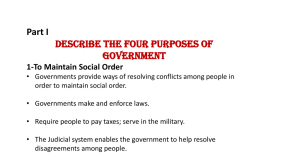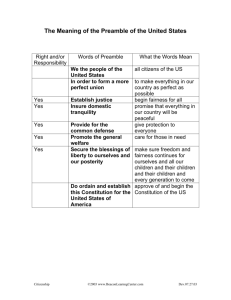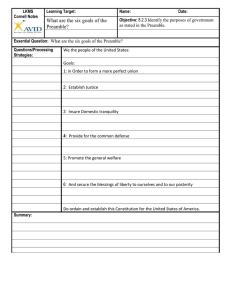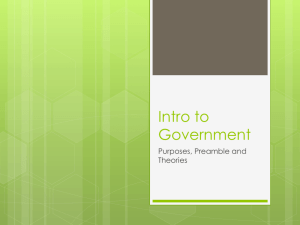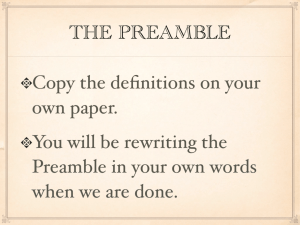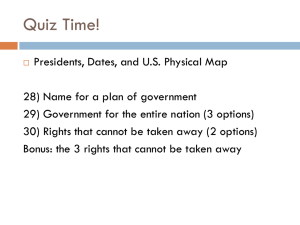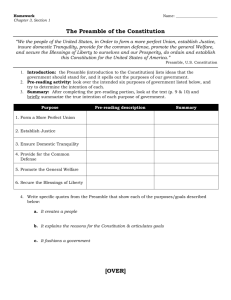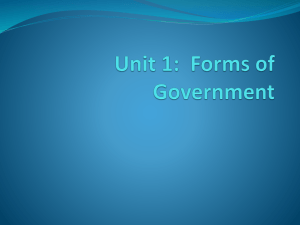Module 2 - Resource Sites
advertisement
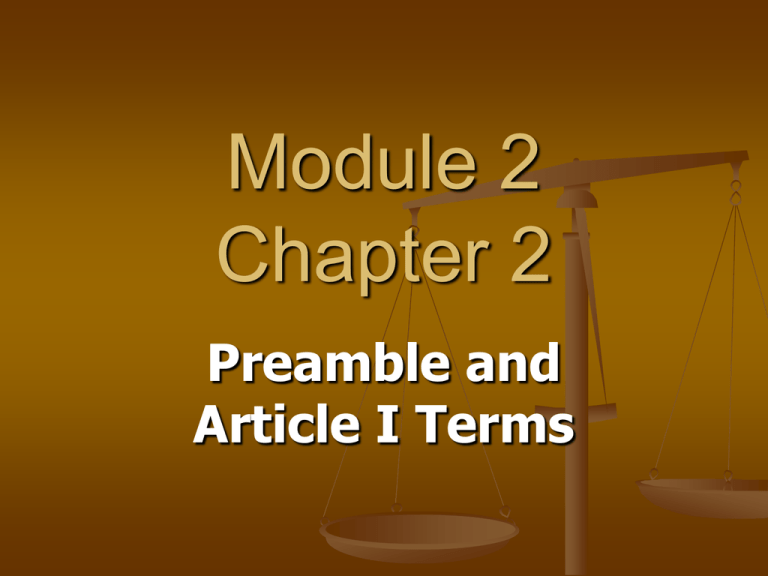
Module 2 Chapter 2 Preamble and Article I Terms Cases Dred Scott v. Sandford (1857): Declared that African Americans were not, and could not be, American citizens. This case, which also invalidated the Missouri Compromise of 1820, helped serve as a catalyst to the Civil War and was overturned by the Fourteenth Amendment. Gibbons v. Ogden (1824): Overturned a monopoly granted to steamboats by the state of New York on the basis that this monopoly interfered with piloting licenses granted to pilots of other ships by the national government. Home Building and Loan Association v. Blaisdell (1934): In upholding the Minnesota Mortgage Moratorium Law, the Court indicated that it would give a much more liberal reading to the contract clause than the Court had given in the nineteenth century Cases McCulloch v. Maryland (1819): Ruled that Congress had the implied power to establish a national bank and that the state of Maryland had no authority to tax it. Pollock v. Farmers’ Loan & Trust Co. (1895): Invalidated the income tax as unconstitutional; the decision was overturned by ratification of the Sixteenth Amendment. U.S. Term Limits v. Thornton (1995): Decided that the qualifications listed for members in the Constitution were exclusive and that states could not add to this requirement by imposing their own term limits. Preamble and Article I Terms Appropriation: A legislative grant of money to fund programs Articles and Sections of the Constitution: Articles are subdivisions of the Constitution. Sections are subdivisions of Articles. The US Constitution has 7 Articles. Article I has 10 sections. Bi – cameral: A two house legislature Bill of Attainder: Pass a law creation a person guilty of a crime without a trial Preamble and Article I Terms Counterfeiting To make an illegal copy of something Dual Citizenship You are a citizen of the United States and the state in which you reside. The United States does not recognize being a citizen of the United States and another country. Duty of Tonnage A tax on as specific rate per ton of capacity. States may not use this form of tax Elastic Clause Article I, Section 8 which gives Congress the power to make laws necessary of proper to complete other responsibilities. Preamble and Article I Terms Emoluments: Salary or payment Enumeration: Population count done by census every 10 years Ex Post Facto Law: A law that makes an act criminal although the act was legal when it was committed Preamble and Article I Terms Impeachment: Charges against a President or Justice made by a majority of the House of Representative Implied Powers: Non-specific constitutional powers stated to be necessary and proper for carrying out the other powers granted Congress Incompatibility Clause: This clause prohibits any member of Congress from accepting an appointment for any other civil office of the US government during his/her active term. Preamble and Article I Terms Letters of Marquee and Reprisal:A commission issued during a state of war by governments authorizing attach on ships to seize property of a hostile nation. Only the US national governments may issues these commissions. States are prohibited from doing so. Naturalization: Process of becoming a citizen of the United States Posterity: Decedents or people who come after us. Preamble and Article I Terms Preamble This is the introductory statement at the beginning of the Constitution stating the objectives of the document. Revenue Bills Bills for raising revenue, taxes etc. Revenue Bill must originate from the House of Representative. 3/5 Clause Slaves in the US were counted as 3/5 of a person for the purpose of (1) accessing state taxes on property or (2) counting toward the number of representative in the House which a State is allotted.
